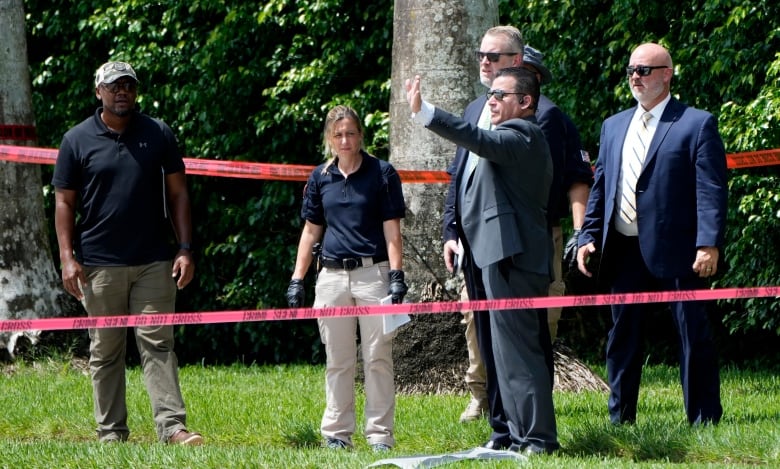After the attempted assassination of Donald Trump in July, the U.S. Secret Service upped its security for him, officials say. But in the wake of an apparent second attempt on the former president’s life, how that security detail works is coming under even more scrutiny.
The FBI is investigating after a man pointed a high-powered rifle with a scope into Trump’s golf club in West Palm Beach, Fla., on Sunday, while Trump was on the course. A suspect was arrested soon after. This comes just nine weeks after the Republican presidential nominee was wounded by a sniper at a Pennsylvania rally.
Who protects U.S. federal officials?
There are several tiers of security detail for U.S. officials across the three branches of government, with different agencies responsible for different individuals.
The State Department arranges protection for the Secretary of State, the Deputy Secretary of State and other official representatives of the U.S. government, and their family members, for example, while the U.S. Capitol Police protects members of Congress.
But the highest level of security is provided by the Secret Service, which assigns protective details as directed by Homeland Security. By law, the Secret Service is tasked with protecting the U.S. president, the vice-president or whoever is next in command, the president- and vice-president-elect and their immediate families, as well as former presidents, their spouses and children up until the age of 16.
The protection of former presidents lasts their entire lifetime, but can be declined, which Richard Nixon did in 1985.

The service also protects “major” presidential and vice-presidential candidates, as determined by the Secretary of Homeland Security, within 120 days of a general presidential election.
Other federal, state and local agencies may be called upon to assist. The Secret Service also protects other officials on a temporary basis, such as visiting heads of state.
Because of the nature of the job, the exact operations of the Secret Service are generally kept under wraps, but agents…
Click Here to Read the Full Original Article at CBC | Top Stories News…

